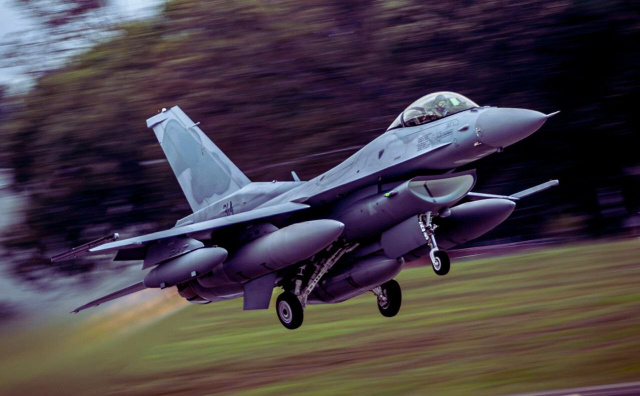
Bulgaria’s efforts to modernize its air defense capabilities with U.S.-made F-16 Block 70 fighter jets are facing delays due to pilot readiness and a slow technical acceptance process, according to Air Force Commander Major General Nikolay Rusev.
In an interview with the Bulgarian News Agency (BTA), General Rusev revealed that while four F-16s have been delivered so far, only one has completed the official acceptance procedure. Of the six trained Bulgarian pilots, just two are currently ready to operate the advanced aircraft.
The current fleet comprises two single-seater and two two-seater jets, with two more expected to arrive soon. General Rusev said he hopes to receive a total of eight aircraft by the end of the year, fulfilling the first phase of the 2019 contract.
A second agreement will eventually expand Bulgaria’s fleet to a full squadron of 16 F-16s. Deliveries of spare parts, maintenance tools, and ground equipment are continuing in parallel.
However, integrating the new fighters into Bulgaria’s airspace defense depends not only on the physical delivery of the jets but also on pilot readiness. Four of the six pilots trained in the United States on older F-16 variants, meaning they require additional flight hours on the Block 70 model before achieving combat certification.
“The process is progressing, but it will take time for all pilots to become fully mission-ready,” General Rusev stated. He emphasized that each aircraft must undergo a detailed technical evaluation and at least one test flight before being accepted for service.
The acceptance procedure, he noted, is comprehensive and relatively lengthy, ensuring all systems function correctly under operational conditions. The two most recent arrivals are still undergoing this process.
Bulgaria’s first F-16 Block 70 arrived on April 2, followed by the second on June 8. In late September, Defense Minister Atanas Zapryanov reported a fuel leak in one of the two-seater F-16D Block 70s. Lockheed Martin representatives are scheduled to carry out necessary repairs.
General Rusev reiterated that he cannot confirm a specific date for the F-16s’ entry into active air defense duty until all aircraft are accepted and the full team of pilots achieves operational certification.
Once fully operational, the F-16 Block 70 fleet is expected to significantly strengthen Bulgaria’s air defense and enhance interoperability with NATO allies, replacing the aging Soviet-era MiG-29 fighters currently in service.
For now, Bulgaria’s modernization journey remains a work in progress—marked by anticipation, technical scrutiny, and the promise of a more secure airspace.
